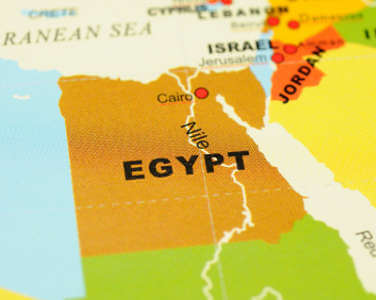
Now, Egypt’s Muslim Brotherhood is forming a political party called Freedom and Justice. Sa`d al-Katatni has been asked to lead the charge. This is a significant development because it marks the first time in the nearly century-long history of the Muslim Brotherhood that it has successfully organized a political party.
So rather than all out hijacking the revolution in Egypt as many expected, the Muslim Brotherhood has essentially walked through the open door of political upheaval.
The installation of al-Katatni to lead the group’s efforts is intriguing. The Carnegie Endowment for International Peace’s Guide to Egypt’s Elections notes al-Katatni as a university professor, head of the Muslim Brotherhood’s parliamentary bloc, and a member of the group’s Guidance Office.
“He is generally regarded as a key pragmatist within the Brotherhood’s conservative-pragmatist leadership divide and a prominent advocate of the Brotherhood’s participation in formal politics. A member of the group’s younger generation, al-Katatni and other pragmatists joined the Brotherhood at the time of its return to the political arena during the 1970s.”
The maneuvers of the Muslim Brotherhood should be a key area of prayer, according to Shaddy Soliman, pastor of Every Nation Church in Lake Mary, Fla. and co-author of Islam and Terrorism. Soliman says the Muslim Brotherhood is rising up in a strong manifestation that is diluting a pure, honest revolution among Egypt’s youth.
“Sheik Yusuf Al-Qaradawi, who was kicked out of Egypt a long time ago, recently returned and there was a big celebration at Tahrir Square,” Soliman says. “The Muslim Brotherhood ushered him right to the pulpit and he spoke to the crowd. He did not allow any of the young people that were leaders of the revolution to speak or any Christians speak. The Muslim Brotherhood is starting to show its true colors. They have shown their sharp teeth.”
Al-Qaradawi is widely recognized as an intellectual force behind the Muslim Brotherhood. His sermon to the approximately one million people in Tahrir Square was venomous, calling for war against Israel and a takeover of Jerusalem.
“Al-Qaradawi asked the Egyptian army to open wide the Rafah crossing and to pray for the re-conquest of Jerusalem by the Muslims, so that he and the Muslims could pray in security at Al-Aqsa Mosque. This part of his sermon was cheered and applauded by the crowd,” reports the Middle East Research Center.
As Soliman sees it, Al-Qaradawi’s sermon added to the confusion that’s already hanging over Egypt. Soliman is calling for prayer for clarity over the minds of Egyptians so they can discern what is happening in their nation through the Muslim Brotherhood’s legal agenda.
“There’s such a spirit of confusion that governs the people. People are not sure what’s going on. People are not sure what is true and what is not,” Soliman says. “A lot of decisions are being made while people are confused. We need to pray against that confusion.”
Finally, Soliman notes there are many agendas trying to find a foothold through the revolution—and the Church is somewhat divided. Although Christians all want the same outcome, believers in Egypt don’t agree on who should be involved or how to get involved. Soliman says, “We need to pray for unity in the Church.”















































